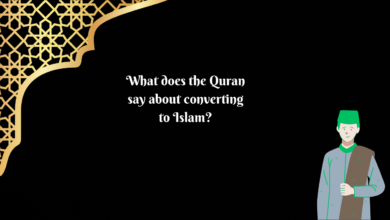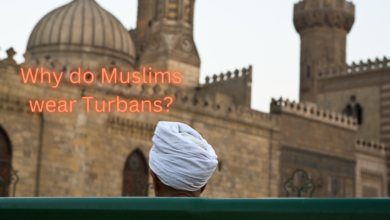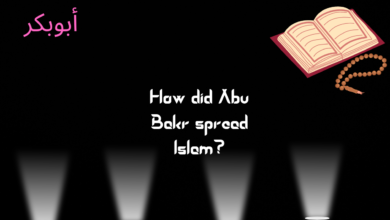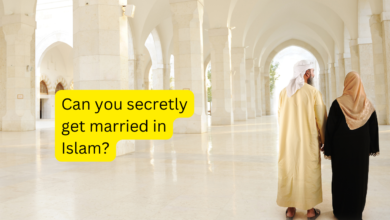Islam in the Middle of Christianity
"Harmony and History: Islam's Presence Amidst Christianity"
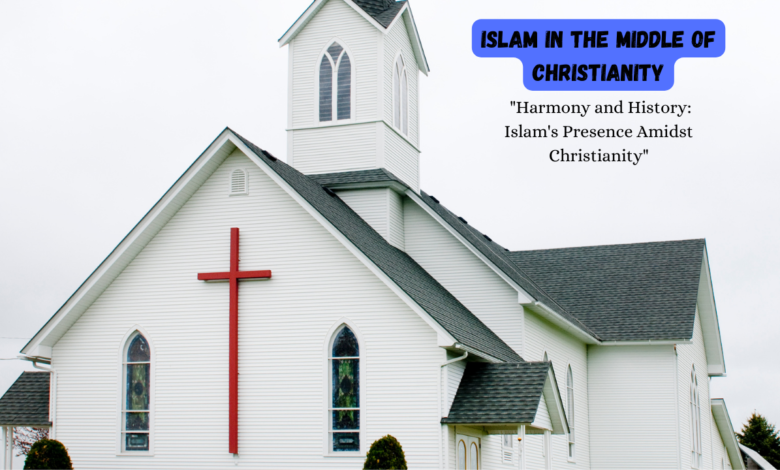
Islam in the Middle of Christianity
Islam is a monotheistic Abrahamic religion, like Christianity, and both religions share common historical and theological roots. In the Middle East, these two faiths have coexisted for centuries, influencing each other’s cultures and societies.
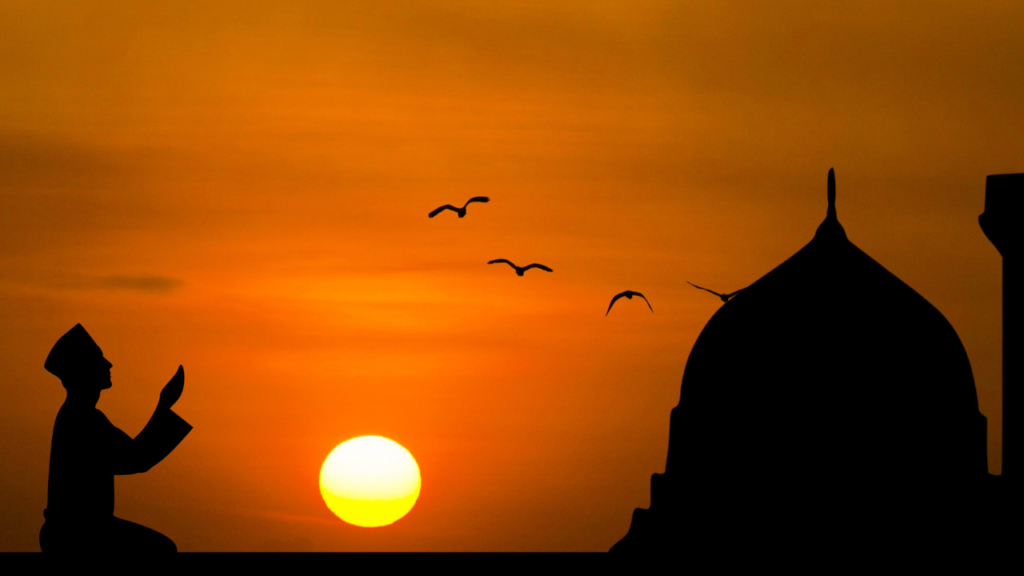
Introduction
In a world characterized by diverse cultures, beliefs, and religions, the Middle East stands as a unique and complex region where Islam and Christianity have coexisted for centuries. The intersection of these two major Abrahamic faiths has shaped the cultural, historical, and religious landscape of the Middle East and beyond. In this article, we will explore the dynamic relationship between Islam and Christianity in the heart of the Middle East, shedding light on both historical interactions and contemporary developments.
Historical Context
The Middle East has long been a melting pot of cultures and faiths. It is the birthplace of both Islam and Christianity, with significant historical events occurring in the region that have left an indelible mark on the two religions. From the birth of Jesus Christ in Bethlehem to the emergence of Islam in the Arabian Peninsula through the teachings of the Prophet Muhammad, the Middle East has been a crucible of religious transformation.
One of the most significant moments in the intersection of Islam and Christianity was the Islamic conquests of the 7th and 8th centuries. These conquests resulted in the establishment of Muslim-majority territories, including the Holy Land. Jerusalem, a city sacred to both religions, has been a focal point of tension and cooperation between Muslims and Christians throughout history.
Despite periods of conflict, there have also been eras of cooperation and coexistence. During the Islamic Golden Age (8th to 13th centuries), Muslim scholars preserved and expanded upon the knowledge of Greek and Roman philosophers and scientists. This intellectual exchange influenced the development of both Islamic and Christian theology and philosophy.
Shared Beliefs and Values
Islam and Christianity share several core beliefs and values, primarily due to their common Abrahamic roots. Both religions emphasize monotheism, the worship of one God, and a strong moral and ethical code that encourages compassion, charity, and justice. Concepts such as love for one’s neighbor and the importance of prayer are central to both faiths.
Additionally, Islam and Christianity revere many of the same prophets, including Abraham, Moses, and Noah. The shared historical and religious figures create a common ground for dialogue and understanding.
Also Check
- Is Islam monotheistic or polytheistic?
- Women in Islam
- Iman in Islam
- House of wisdom Islam
- Patience of prophet Muhammad (PBUH)
Interfaith Relations Today
In the modern era, the relationship between Islam and Christianity in the Middle East is characterized by a complex interplay of coexistence, cooperation, and challenges. Christians, particularly in countries like Egypt, Lebanon, and Syria, have lived alongside their Muslim neighbors for centuries. In these countries, Christians have contributed to the cultural and social fabric, and they continue to do so today.
However, it is essential to acknowledge that the Middle East has also witnessed periods of tension and conflict. Geopolitical factors, sectarian divides, and ideological differences have at times strained relations between adherents of the two faiths. The rise of extremist groups and political instability in the region have further complicated interfaith dynamics.
Efforts to Promote Peace and Understanding
Despite the challenges, there are numerous initiatives aimed at promoting peace, tolerance, and interfaith dialogue in the Middle East. Religious leaders, scholars, and organizations from both sides have come together to foster greater understanding and cooperation.
Interfaith dialogues, such as those organized by the Common Word Initiative and the King Abdullah bin Abdulaziz International Centre for Interreligious and Intercultural Dialogue, have brought Muslim and Christian leaders together to address common challenges and promote religious harmony.
Conclusion
Islam and Christianity, as two of the world’s major religions, have a profound influence on the Middle East and its diverse cultural landscape. While the historical interactions between these faiths have been marked by periods of both cooperation and conflict, there remains a shared heritage and a potential for increased understanding and collaboration.
In today’s interconnected world, the need for interfaith dialogue and cooperation has never been greater. By acknowledging their shared values, respecting differences, and working together to address common challenges, Muslims and Christians in the Middle East can contribute to a more harmonious and peaceful future for the region and the world.

(FAQs) about Islam in the context of its relationship with Christianity in the Middle East:
What is Islam, and how does it relate to Christianity in the Middle East?
Islam is a monotheistic Abrahamic religion, like Christianity, and both religions share common historical and theological roots. In the Middle East, these two faiths have coexisted for centuries, influencing each other’s cultures and societies.
Do Muslims and Christians in the Middle East live peacefully together?
Yes, in many regions of the Middle East, Muslims and Christians have historically coexisted peacefully. However, there have been periods of tension and conflict as well, often driven by political or social factors rather than religious differences.
How does the role of Jesus differ in Islam compared to Christianity?
In Islam, Jesus (known as Isa in Arabic) is considered a prophet, not the Son of God. Muslims believe in Jesus’ miraculous birth, teachings, and his eventual return, but they do not accept the Christian concept of the Holy Trinity.
Are there any religious practices or rituals that Muslims and Christians in the Middle East share?
While there are differences in religious practices, both faiths share some common values, such as charity, prayer, and a belief in the importance of family and community.
What are the major branches or sects within Islam, and how do they interact with Christianity in the Middle East?
The major branches of Islam are Sunni and Shia, with different subgroups within each. These sects have varied relationships with Christians in the Middle East. Overall, the dynamics are influenced by both religious and political factors.
Are there any historical events that have shaped the relationship between Islam and Christianity in the Middle East?
Yes, various historical events, such as the Crusades, Islamic expansion, and colonialism, have influenced the interaction between these two religions in the Middle East. These events have left lasting impacts on the region’s religious and cultural landscape.
Can a Muslim marry a Christian in the Middle East?
Interfaith marriages between Muslims and Christians are possible in some Middle Eastern countries but may involve legal and social challenges. The acceptability and legal requirements vary by country and Islamic tradition.
How do religious holidays and celebrations in Islam and Christianity affect daily life in the Middle East?
Religious holidays and celebrations, such as Ramadan for Muslims and Christmas for Christians, are widely observed in the Middle East. These occasions often bring communities together and are an essential part of cultural life in the region.
Are there any efforts to promote interfaith dialogue and understanding between Muslims and Christians in the Middle East?
Yes, various organizations and initiatives exist in the Middle East to promote interfaith dialogue and understanding. These efforts aim to foster tolerance, peaceful coexistence, and cooperation among people of different faiths.
How do Middle Eastern countries with significant Christian populations protect the rights and religious freedom of their Christian citizens?
The protection of religious freedom varies from one country to another in the Middle East. Some countries have laws and measures in place to protect the rights of religious minorities, including Christians, while others face challenges in this regard.
